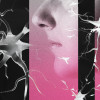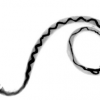Compound reverses symptoms of Alzheimer's disease in mice
A molecular compound developed by Saint Louis University scientists restored learning, memory and appropriate behavior in a mouse model of Alzheimer's disease, according to findings in the May issue of the Journal of Alzheimer's Disease. The molecule also reduced inflammation in the part of the brain responsible for learning and memory.
The paper, authored by a team of scientists led by Susan Farr, Ph.D., research professor of geriatrics at Saint Louis University, is the second mouse study that supports the potential therapeutic value of an antisense compound in treating Alzheimer's disease in humans.
"It reversed learning and memory deficits and brain inflammation in mice that are genetically engineered to model Alzheimer's disease," Farr said. "Our current findings suggest that the compound, which is called antisense oligonucleotide (OL-1), is a potential treatment for Alzheimer's disease."










































































